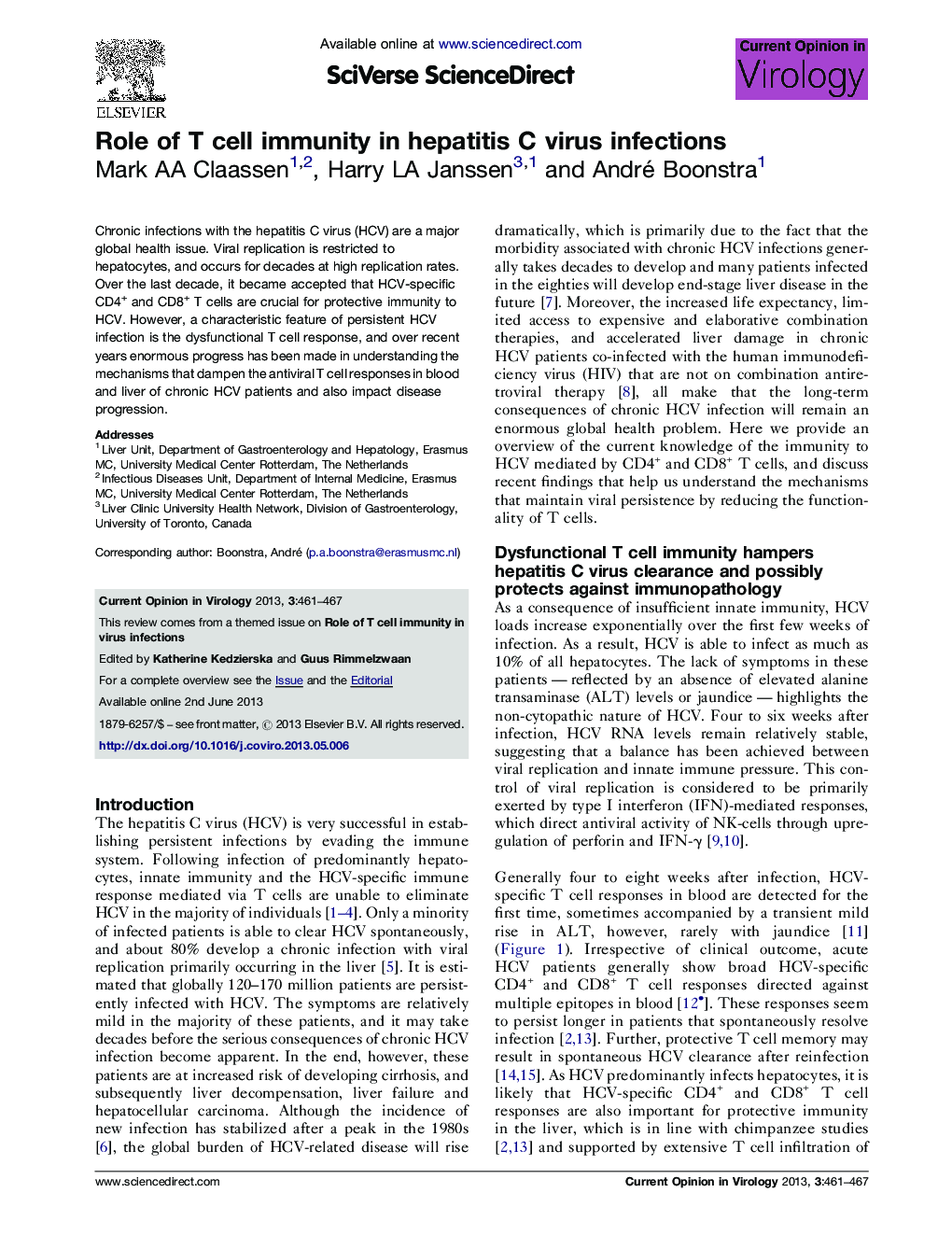| Article ID | Journal | Published Year | Pages | File Type |
|---|---|---|---|---|
| 5806874 | Current Opinion in Virology | 2013 | 7 Pages |
â¢HCV-specific T cells are essential for protective immunity to HCV and disease progression.â¢During persistent infection, HCV-specific T cells are functionally impaired.â¢T cell exhaustion and active suppression contribute to T cell dysfunction in chronic HCV.â¢HCV-specific T cells expressing IL-17/IL-22 may modulate severity of liver disease.
Chronic infections with the hepatitis C virus (HCV) are a major global health issue. Viral replication is restricted to hepatocytes, and occurs for decades at high replication rates. Over the last decade, it became accepted that HCV-specific CD4+ and CD8+ T cells are crucial for protective immunity to HCV. However, a characteristic feature of persistent HCV infection is the dysfunctional T cell response, and over recent years enormous progress has been made in understanding the mechanisms that dampen the antiviral T cell responses in blood and liver of chronic HCV patients and also impact disease progression.
